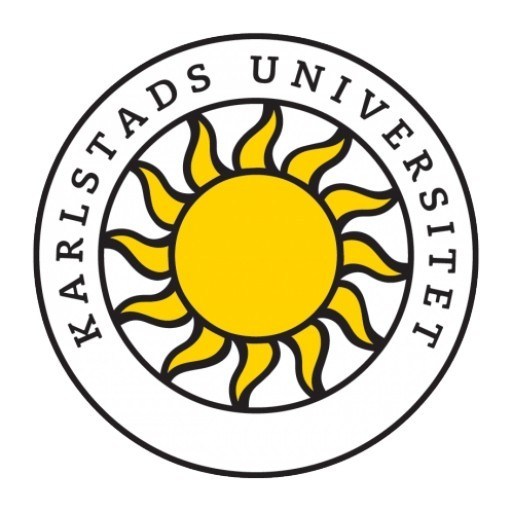The Bachelor of Arts in Management and Corporate Sustainability at City University of Seattle is a comprehensive undergraduate program designed to prepare students for leadership roles in the modern business environment. This program integrates core management principles with a strong emphasis on sustainable business practices, equipping graduates with the skills necessary to promote environmental responsibility and corporate social accountability within organizations. Students will study a variety of subjects, including organizational behavior, strategic management, financial accounting, ethics in business, and sustainable development, all within a global context. The curriculum emphasizes practical application through case studies, projects, and internships, enabling students to develop critical thinking, problem-solving, and effective communication skills. The program also highlights the importance of innovation, ethical decision-making, and stakeholder engagement, preparing graduates to lead companies that are not only profitable but also environmentally conscious and socially responsible. Throughout their studies, students gain an understanding of the legal and regulatory framework surrounding corporate sustainability and learn to implement sustainable strategies that align with business objectives. The program is designed to be flexible, with options for online and on-campus learning, and supports students in developing a global perspective essential for today’s interconnected economy. Graduates of the Bachelor of Arts in Management and Corporate Sustainability will be well-prepared to pursue careers in various sectors, including corporate social responsibility, sustainability consulting, environmental management, and business administration. They will possess the knowledge and skills needed to influence positive change in organizations and communities, making a meaningful contribution to building a sustainable future. Additionally, the program fosters leadership qualities, ethical reasoning, and a lifelong commitment to learning, ensuring students are prepared for ongoing professional development and evolving industry demands.
The Management and Corporate Sustainability program at City University of Seattle prepares students to become forward-thinking leaders in today's dynamic business environment. This comprehensive curriculum combines essential management principles with a strong focus on sustainable business practices, corporate responsibility, and ethical decision-making. Students will explore key topics such as strategic planning, organizational behavior, leadership development, and financial management, all within the context of promoting environmental, social, and economic sustainability. The program emphasizes the integration of sustainable practices into core business operations, equipping graduates with the skills needed to balance profitability with social and environmental responsibility.
Throughout the program, students engage in hands-on projects, case studies, and real-world scenarios that foster critical thinking and problem-solving abilities. They gain proficiency in analyzing corporate sustainability issues and developing innovative strategies to address them. The curriculum also includes courses on global business environment, stakeholder engagement, corporate governance, and sustainable development goals, preparing students to operate effectively in diverse and complex markets. In addition, the program highlights leadership skills necessary for managing change, fostering corporate social responsibility, and promoting ethical conduct within organizations.
The program is designed for aspiring managers, business professionals, and entrepreneurs seeking to integrate sustainability into their strategic initiatives. With a flexible online format, students can balance their studies with professional commitments. Graduates of the Management and Corporate Sustainability program will be well-equipped to pursue leadership roles in various sectors, including multinational corporations, government agencies, non-profit organizations, and consultancies. They will have the expertise to guide organizations towards sustainable growth, ethical decision-making, and responsible corporate governance, making a positive impact on society and the environment. By the end of the program, students will possess a comprehensive understanding of sustainable business practices, management strategies, and ethical principles vital for leading organizations into a sustainable future.
Program requirements for the Management and Corporate Sustainability degree at City University of Seattle include a comprehensive curriculum designed to equip students with leadership, strategic management, and sustainability skills. Prospective students must hold a bachelor's degree from an accredited institution. Admission typically requires submission of official transcripts, a completed application form, a resume highlighting relevant work experience, and letters of recommendation. Applicants may also need to provide a personal statement or essay outlining their interest in sustainability and management fields. The program emphasizes both theoretical knowledge and practical application; therefore, students are expected to engage in case studies, group projects, and internships. Coursework includes subjects such as organizational management, sustainable business practices, corporate social responsibility, environmental economics, ethics in management, and strategic planning. Additionally, students are encouraged to participate in seminars, workshops, and guest lectures hosted by industry professionals to enhance experiential learning. To graduate, students must complete all coursework with a minimum GPA as established by the university, which is generally 3.0 on a 4.0 scale. The program may also require the completion of a capstone project or thesis, demonstrating their ability to analyze and develop solutions for real-world sustainability challenges. Students are advised to review specific course requirements and prerequisites for each module, as these may vary. International students are required to demonstrate proficiency in English through standardized tests such as TOEFL or IELTS, unless they qualify for exemption. The program promotes a global perspective, and students are often encouraged to participate in international study opportunities or projects. Continuous professional development is supported through access to university resources, alumni networks, and industry partnerships, ensuring that graduates are prepared to lead innovative and sustainable management initiatives in diverse organizational contexts.
The financing of the Management and Corporate Sustainability program at City University of Seattle encompasses various funding options tailored to meet the needs of a diverse student body. The university offers a range of financial aid opportunities, including federal and state grants, scholarships, and loan programs. Prospective students are encouraged to complete the Free Application for Federal Student Aid (FAFSA) to determine eligibility for federal grants and loans, which can significantly offset the costs of tuition and related expenses. Additionally, City University of Seattle provides institutional scholarships based on merit, need, or specific criteria related to the management and sustainability fields, supporting students financially throughout their academic journey.
Furthermore, the university partners with private organizations and corporations that offer sponsorships or tuition reimbursement programs for students pursuing degrees in management and corporate sustainability. Many students also consider external funding options, such as private student loans or employer-sponsored tuition assistance, to finance their studies. City University of Seattle promotes flexible payment plans allowing students to spread out tuition payments over the course of their program, easing the financial burden.
International students may have access to different financial support options, including international scholarships or specialized loan programs. The university’s financial aid office provides comprehensive counseling to help students navigate their financing options effectively. Moreover, the availability of part-time work opportunities on campus or through partnerships assists students seeking additional income to support their education. Overall, the program’s financing structure aims to make management and corporate sustainability education accessible and affordable, enabling students to focus on acquiring crucial skills for their career advancement without undue financial stress.
The Management and Corporate Sustainability program at City University of Seattle is designed to prepare students for leadership roles in today's dynamic business environment, emphasizing responsible management practices and sustainable business strategies. This program combines foundational business principles with specialized coursework in sustainability, ethics, and corporate social responsibility, equipping graduates with the skills necessary to develop environmentally and socially responsible business solutions. The curriculum focuses on strategic planning, organizational management, and ethical decision-making, all within the context of global sustainability challenges. Students learn to assess the social and environmental impacts of business operations and to develop strategies that promote long-term corporate responsibility. The program aims to foster critical thinking, ethical reasoning, and innovative problem-solving abilities, essential for managing sustainable enterprises in various industries. Courses are delivered in a flexible format, including online classes and evening sessions, to accommodate working professionals. The program also integrates practical experiences such as case studies, projects, and potential internships, providing real-world exposure. Graduates of this program are prepared for roles such as sustainability managers, corporate social responsibility officers, consulting specialists, and business development managers with a focus on sustainable practices. The program emphasizes leadership skills, ethical standards, and strategic awareness, empowering students to lead organizations towards sustainable and responsible growth. City University of Seattle's focus on a global perspective ensures that students understand sustainability issues across different cultural and economic contexts, enhancing their capacity to operate internationally. This program reflects the university's commitment to producing ethical leaders who can balance business objectives with societal needs, fostering a sustainable future for organizations and communities worldwide.






